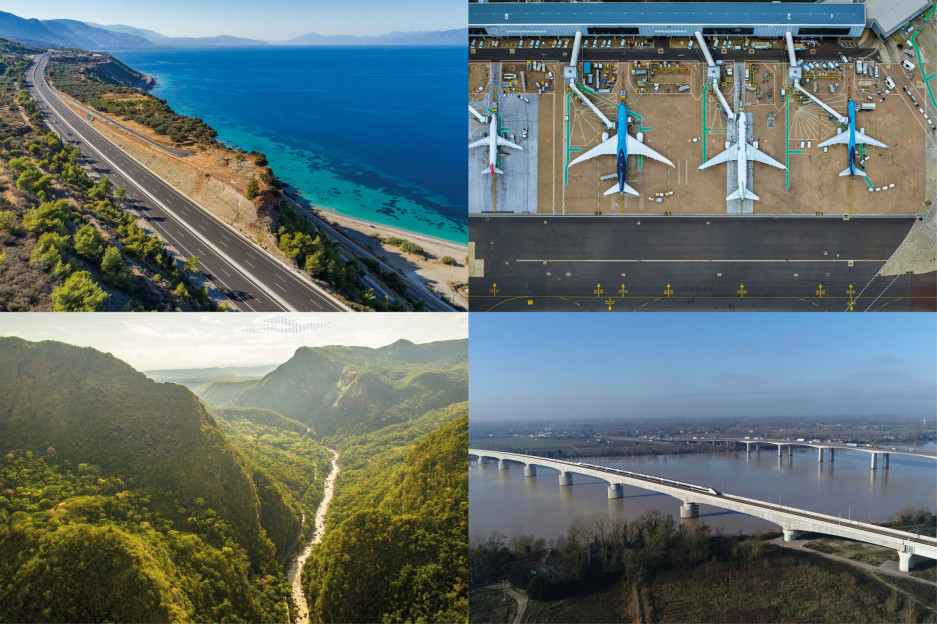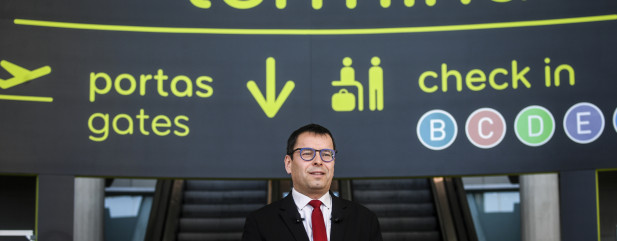
Positive Mobility
eMagInternational and local: the two faces of successful and sustainable growth

Over the past year and a half, the pandemic has disrupted trade between countries on a scale almost without parallel in history. And yet, despite this crisis, 2020 and 2021 saw VINCI Concessions demonstrate the resilience of its model as it continued to grow the international scope of its activities.
In Europe, we signed a public-private partnership contract to build and operate roads in the Czech Republic, a first for us. In Germany, in another first, we won a contract for a federal road in the state of Thuringia. And let’s not forget the concession for Annecy Airport in France, which we will be operating as of 2022.
In Latin America, we have further cemented our presence in Brazil thanks to a contract to operate Manaus Airport and six further regional airports in the Amazon region.
VINCI Concessions also sealed its first ever public-private partnership contract in Africa to transform the Nairobi-Nakuru-Mau Summit Road into a dual-lane motorway. The project is strategically significant for the Kenyan economy and the development of tourism in the Rift Valley. This prestigious PPP contract means that VINCI Concessions now operates in 24 countries.
Given the current state of the world, I can understand that this proactive internationalisation strategy may seem counterintuitive. However, it is based on a long-term vision and a deeply held conviction that has always been central to the VINCI Concessions model: as our means of transport and communication continue to progress, the prospects facing states, their citizens and many businesses have become truly global. I strongly believe that trying to turn the clock back on this major step forward for humanity would be harmful. This remains true despite the fact that the health crisis has revealed weaknesses in certain supply chains that need to be addressed. And even though the climate emergency means that it is critical we bring about an ecological and energy transition in every mobility sector.
I believe that the internationalisation of trade, relationships and, quite simply, travel is something precious. And that it is worth defending – particularly by making international travel ever more affordable and sustainable. Why? Because being open to the wider world makes us stronger. For states this is unarguable: no system centring on economic isolation has ever lastingly improved people’s well-being. And every country, from the most advanced to those whose economies are only slowly emerging, knows all too well that international connectivity is decisive to their economic, diplomatic, and cultural influence.
Then there’s the fact that internationalisation translates into increased resilience. For a business like VINCI Concessions, with its deliberately decentralized model, there is certainly value to be found in the economies of scale achievable thanks to the sheer volume of our activities, but above all it lies in our ability to act as a network. This makes us large enough to enjoy a measure of protection from cyclical regional fluctuations, puts us in direct contact with the planet’s leading innovation hotbeds, and allows us to identify and test best practices in the place where they emerge before sharing them more widely. The resilience of our international network more than proved itself during the pandemic. Because we had already experienced the initial impacts of the health crisis first-hand in Asia in early 2020, it was easier for us to efficiently roll out the appropriate measures once Covid-19 arrived at our European then American locations a few weeks later.
Lastly, an international outlook is invaluable for local development; the two are, to a very large extent, inseparable. The arrival of an international player like VINCI Concessions can really help to kickstart other developments, particularly in countries with emerging economies. Thanks to the investments we bring and the jobs we create. Thanks to the technical skills and know-how we transfer. Thanks to the experiences we share and the training we offer. And, of course, thanks to all the regional opportunities that our activities open up with road, rail and air travel that we help to make more extensive, simpler, safer and more sustainable.
Our on-going international expansion into new parts of the world is a sign of the confidence that our long-term model inspires, a model rooted in investment and innovation to improve the passenger experience and support the environmental transformation of the infrastructure we operate. This is our priority, in line with the VINCI Group’s environmental goals. Rather than slowing us down, the pandemic actually encourages us to ramp up our efforts to protect mobility, an essential benefit to humanity, while respecting the planet.
Nicolas Notebaert, Chief Executive Officer of Concessions at VINCI, President of VINCI Airports and VINCI Autoroutes

Promoting positive mobility: a source of useful solutions
While the current crisis offers our sector valuable lessons, it also demonstrates the resilience of our model for ...
Discover